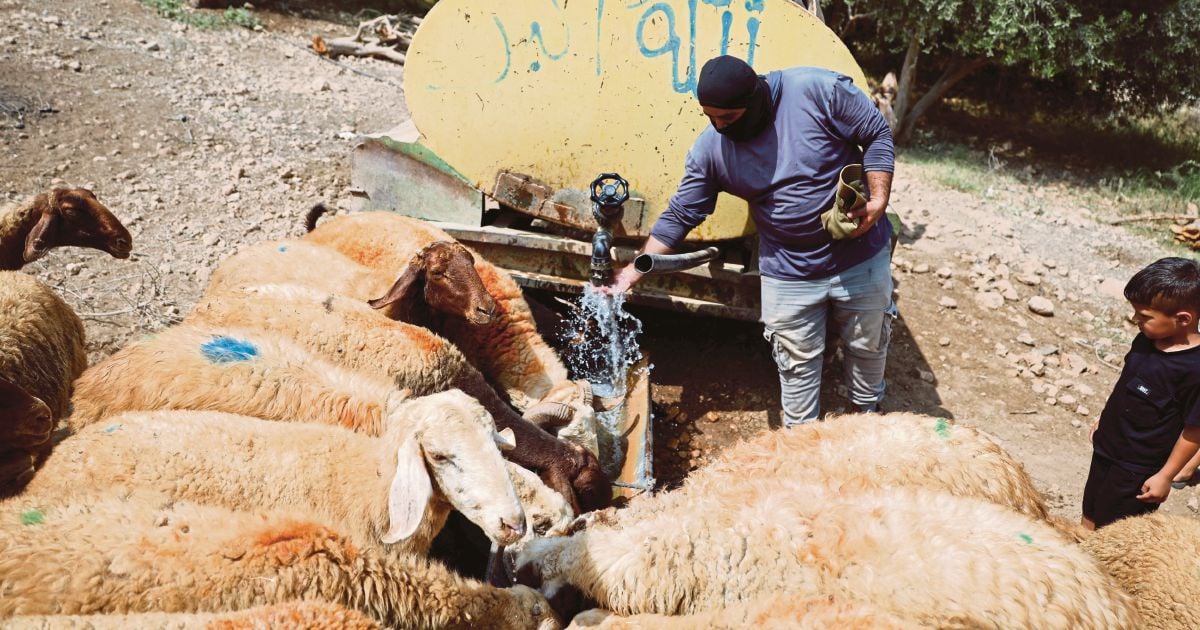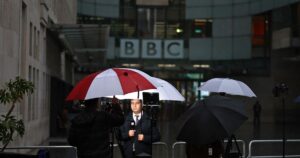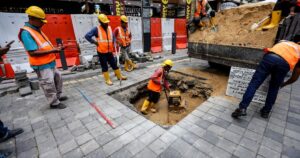PALESTINIANS in the Israeli-occupied West Bank are facing severe water shortages that they say are being driven by increasing attacks on scarce water sources by extremist Jewish settlers.
Across the West Bank in Palestinian communities, residents are reporting shortages that have left taps in homes dry and farms without irrigation.
In Ramallah, one of the largest Palestinian cities in the West Bank and the administrative capital of the Palestinian Authority, residents facing water shortages are now relying on public taps.
“We only get water at home twice a week, so people are forced to come here,” said Umm Ziad, as she filled empty plastic bottles with water alongside other Ramallah residents.
The United Nations recorded 62 incidents of Jewish settlers vandalising water wells, pipelines, irrigation networks and other water-related infrastructure in the West Bank in the first six months of 2025.
The Israeli military acknowledged it has received multiple reports of Israeli civilians intentionally causing damage to water infrastructure but that no suspects had been identified.
Among the targets have been a freshwater spring and a water distribution station in Ein Samiya, 16km northeast of Ramallah, serving around 20 nearby Palestinian villages and some city neighbourhoods.
Settlers have taken over the spring that many Palestinians have used for generations to cool off in the hot summer months.
Palestinian public utility Jerusalem Water Undertaking said the Ein Samiya water distribution station had become a frequent target of settler vandalism.
“Settler violence has escalated dramatically,” Abdullah Bairait, 60, a resident of nearby Kfar Malik, standing on a hilltop overlooking the spring.
“They enter the spring stations, break them, remove cameras, and cut off the water for hours.”
According to the United Nations’ humanitarian office, settlers carried out multiple attacks targeting water springs and vital water infrastructure in the Ramallah, Salfit and Nablus areas between June 1 and July 14.
The Ein Samiya water spring had been repeatedly attacked, it said in a July report.
Israeli security forces view any damage to infrastructure as a serious matter and were carrying out covert and overt actions to prevent further harm, the Israeli military said in response to Reuters questions for this story.
It said the Palestinian Water Authority had been given access to carry out repairs.
Kareem Jubran, director of field research at Israeli rights group B’Tselem, said that settlers had taken control over most natural springs in the West Bank in recent years and prevented Palestinians from accessing them.
Palestinians have long faced a campaign of intimidation, harassment and physical violence by extremist settlers, who represent a minority of Jewish settlers living in the West Bank.
Most live in settlements for financial or ideological reasons and do not advocate for violence against Palestinians.
Palestinians say the frequency of settler violence in the West Bank has increased since the October 7, 2023 Hamas attacks on Israel.
They say they fear the rise in settler violence is part of a campaign to drive them from the land. The United Nations has registered 925 such incidents in the first seven months of this year, a 16 per cent year-on-year increase.
Palestinians in the West Bank have long struggled to access water.
The Western-backed Palestinian Authority exercises limited civic rule in parts of the territory and relies on Israeli approvals to develop and expand water infrastructure.
Palestinian officials and rights groups say that’s rarely given.
B’Tselem said in an April 2023 report that Palestinians were facing a chronic water crisis, while settlers have an abundance of water.
“The water shortage in the West Bank is the intentional outcome of Israel’s deliberately discriminatory policy, which views water as another means for controlling the Palestinians,” B’Tselem wrote in the report.
Across the West Bank, water tanks are common in Palestinian homes, storing rainwater or water delivered by trucks due to an already unreliable piped water network that has been exacerbated by the settler attacks.
Along with travelling long distances to collect water, Palestinians have become reliant on costly water deliveries to manage the chronic water crisis that they fear will only grow.
“If the settlers continue their attacks, we will have conflict on water,” said Wafeeq Saleem, who was collecting water from a public tap outside Ramallah.
“Water is the most important thing for us.”
The writers are from Reuters
© New Straits Times Press (M) Bhd






